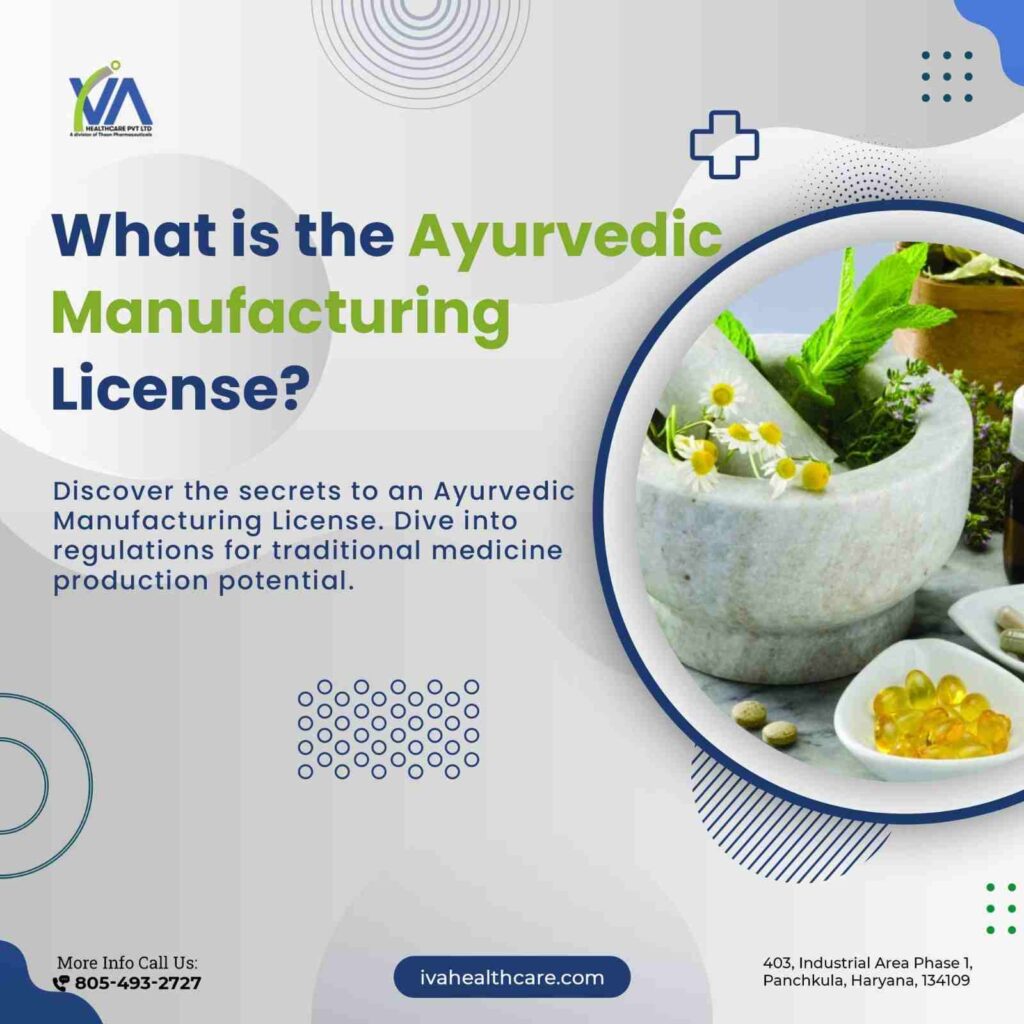Ayurveda, the ancient Indian system of medicine, has gained global recognition for its holistic approach to health and wellness. With the increasing popularity of Ayurvedic products, the demand for Ayurvedic manufacturing licenses has also surged. In this article, we’ll explore what an Ayurvedic manufacturing license entails, its significance for businesses, and the process of obtaining one.
Ayurvedic PCD Company
An Ayurvedic PCD (Propaganda Cum Distribution) company plays a crucial role in distributing Ayurvedic products to various regions. These companies are responsible for marketing and selling Ayurvedic medicines and products under their brand name. Let’s delve into the details of what it takes to establish an Ayurvedic PCD company and the regulatory requirements involved.

Understanding Ayurvedic Manufacturing License
An Ayurvedic manufacturing license is a legal permit granted by the regulatory authorities to manufacture Ayurvedic medicines and products. This license ensures that the manufacturing facilities comply with the standards set by regulatory bodies to maintain the quality, safety, and efficacy of Ayurvedic formulations. Obtaining an Ayurvedic manufacturing license is mandatory for businesses looking to engage in the production of Ayurvedic products for commercial purposes.
Key Requirements for Obtaining an Ayurvedic Manufacturing License
- Infrastructure: The manufacturing facility must meet specific infrastructure requirements, including adequate space, equipment, and storage facilities, to ensure the hygienic and safe production of Ayurvedic medicines.
- Quality Control Measures: Strict quality control measures must be implemented throughout the manufacturing process to ensure the purity, potency, and safety of Ayurvedic formulations. This includes adherence to Good Manufacturing Practices (GMP) guidelines.
- Qualified Personnel: Trained and qualified personnel must oversee various aspects of the manufacturing process, including formulation development, production, quality control, and packaging.
- Documentation: Detailed documentation, including formulation records, batch manufacturing records, quality control records, and standard operating procedures (SOPs), must be maintained to demonstrate compliance with regulatory requirements.
Process of Obtaining an Ayurvedic Manufacturing License
- Application Submission: The first step involves applying for the Ayurvedic manufacturing license to the relevant regulatory authority, such as the Ayush Department or the State Licensing Authority.
- Inspection: Upon receiving the application, regulatory officials thoroughly inspect the manufacturing facility to assess compliance with the prescribed standards and guidelines.
- Evaluation: The regulatory authority evaluates the application, along with the inspection report, to determine whether the manufacturing facility meets the requirements for granting the license.
- License Issuance: If the manufacturing facility meets all the criteria and complies with the regulatory standards, the Ayurvedic manufacturing license is issued to the applicant, allowing them to commence production of Ayurvedic medicines and products.

Significance of Ayurvedic Manufacturing License
Obtaining an Ayurvedic manufacturing license is crucial for ensuring the quality, safety, and efficacy of Ayurvedic products. It demonstrates the commitment of the manufacturer to adhere to regulatory standards and best practices in manufacturing. Additionally, having a valid manufacturing license enhances the credibility and trustworthiness of the Ayurvedic PCD company in the eyes of consumers, healthcare professionals, and regulatory authorities.
In conclusion, obtaining an Ayurvedic manufacturing license is a prerequisite for businesses producing Ayurvedic medicines and products. By complying with regulatory requirements and maintaining high-quality standards, Ayurvedic PCD companies can contribute to the promotion of Ayurveda and provide consumers with safe and effective healthcare solutions.

